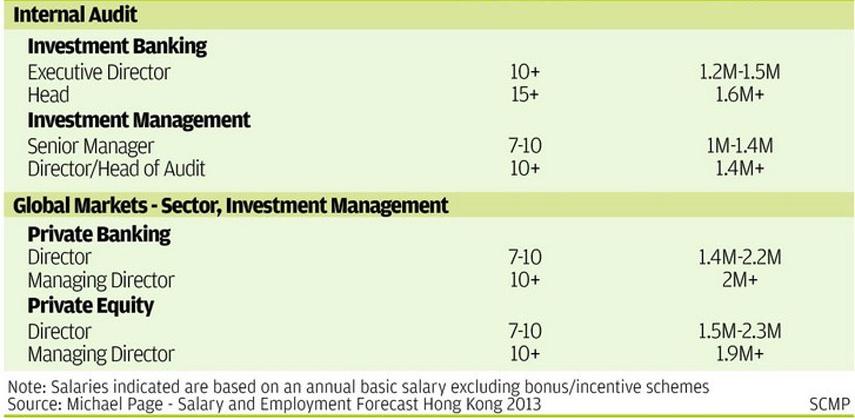“The pay in private banking and wealth management really depends on experience. For private bankers, it depends on the asset under management (AUM) they bring in. Some are also on profit sharing. It also depends on which bank you are with and how confident you are in getting your clients to transfer your accounts to a new bank.
“Any time a private banker changes jobs, they cannot bring 100 per cent of their clients – maybe 50 per cent will stay with the current bank. The banker has established or brought in new clients, and that’s a personal relationship. I have also heard that some banks have two or three people service a client so that the client doesn’t get attached to any one single private banker, and if they leave, there’s someone else to pick up the account.
“Sometimes banks specify AUM thresholds when hiring, but typically, if they are director or VP level, they should already be bringing in so much based on the salary. We are typically talking about US$200 million and above. These are for experienced private bankers. but there are some smaller banks and maybe they get by on US$80 million to US$100 million.
“It is hard to find people with a lot of experience in private banking and wealth management because they are quite stable. Unless a client’s name is fairly well known or it is a Swiss bank, it wouldn’t necessarily attract them.
“People who move look for prestige name reputation branding. Many, if they are investing and putting their money in a bank, want to ensure it’s a bank they know well enough. We have a client which is a newly set up bank, but in Europe they are quite well established, and it was a challenge for them to find the right people.
“We try to get candidates to take a more long-term view. Sometimes, at smaller banks, there may be better flexibility, including in pay and work hours. Maybe they don’t have to be in the office every single day.”
Fiona Yung is executive director and head of executive resources at Tricor Services


